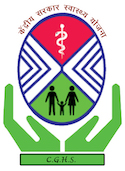Human brain is a complex structure, which helps us to do all simple and extraordinary jobs in daily routine. There are different types of cells and areas which help brain to perform its activities. The main cells are neurons. Just similar to a hard disc of computer, brain stores all the memories in the circuits of these nerve cells- neurons. When these cells starts degenerating and dying due to certain pathological process, it becomes hard for patient to remember anything. And this condition we know as- Alzheimer’s condition.
Alzheimer’s disease (AD) is an age-related, non-reversible encephalopathy that develops over the years. The condition is known as after Dr Alois Alzheimer, in 1906. It’s a disorder that causes brain cells to waste away (degenerate) and die.
Alzheimer’s disease is the common cause of dementia (a general term for memory loss) a constant decline in thinking, behavioural and social skills. It also disrupts a person’s ability to function independently, and other cognitive skills are enough to interfere with daily life.
Therefore, for quality life, it is important to stop these cells to die. And besides this it is also important to bring back the normal behaviour of body so that the cells won’t decay further. Only Ayurveda treatment for Alzheimer’s disease helps to achieve these two aims together. Here we will discuss about the disease, ayurvedic approach towards alzheimer’s disease. Along with this we will discuss the line of treatment for Alzheimer’s disease at Sukhayu Ayurved, so that you can understand the whole process of the treatment.
Facts about Alzheimer’s
- Alzheimer’s disease starts slowly. It involves the parts of the brain which control thought, memory and language.
- The early signs of the disease could also be forgetting recent events or conversations. As the disease progresses, an individual will develop severe memory impairment and lose the power to hold out everyday tasks.
- Alzheimer’s worsens over time. In its early stages, amnesia is mild, but with late-stage Alzheimer’s, individuals lose the power to hold on a conversation and answer their environment.
- It usually begins after age 60. The risk goes higher as you get older. Your risk is additionally higher if a loved one has had the disease.
Signs and Symptoms
Memory loss may be a key symptom of Alzheimer’s disease. At first, an individual with Alzheimer’s disease could also be conscious of having difficulty with remembering things and organizing thoughts eventually forget the names of relations and everyday objects.
- Memory loss disrupts daily life,
- forgetting recently learned information,
- forget conversations, appointments or events,
- thinking and reasoning difficulty concentrating and thinking, especially about abstract concepts such as numbers.
- Multitasking is difficult,
- challenging to manage finances, balance cheque books and pay bills on time.
- Making judgments and decisions the power to form reasonable choices and beliefs in everyday situations will decline.
- Planning and performing familiar tasks – once-routine activities become a struggle because the disease progresses.
- People with advanced Alzheimer’s may forget the way to perform basic tasks like dressing and bathing.
- Changes in personality and behaviour -Brain changes that occur in Alzheimer’s disease can affect moods and behaviours.
Problems may also include the following:
- Depression
- Disregard
- Social withdrawal
- Mood swings
- Scepticism in others
- Grumpiness and aggressiveness
- Modifications in sleeping habits
- Wandering
- Loss of inhibitions
- Illusions.
Causes of Alzheimer’s disease
Alzheimer’s disease caused by a mixture of genetic, lifestyle and environmental factors that affect the brain over time. Less than 1 per cent of the time, Alzheimer’s is caused by specific genetic changes that virtually guarantee an individual will develop the disease. These rare circumstances usually result in disease onset in middle age.
Alzheimer’s disease caused due to the core problems with brain proteins that fail to function regularly, disrupt the functions of brain cells (neurons) and unleash a series of toxic events. Neurons are damage and lose connections to every other and ultimately leads to death.
How Does Alzheimer’s Disease Occur
The damage initiates in the region of the brain that controls memory, but the process begins years before the first symptoms. The loss of neurons spreads during a considerable predictable pattern to other parts of the brains. By the last stage of the disease, the brain has shrunk.
Two abnormal structures called plaques as well as tangles, are responsible for damaging and killing nerve cells.
- Plaques are actually deposits of a particular protein fragment termed as beta-amyloid (BAY-tuh AM-uh-loyd) which build up within the spaces between nerve cells.
- Tangles are twisted fibres of another protein called tau (rhymes with “wow”) which build up inside cells.
It’s the damage and death of nerve cells that causes memory loss, mood changes, issues in carrying out core activities and other symptoms of Alzheimer’s disease.
Three significant elements within the brain are related to the disease processes of Alzheimer.
- Amyloid plaques which are fragments of a protein called beta-amyloid peptide mixed with a set of proteins, remnants of neurons, and pieces of other nerve cells.
- Neurofibrillary tangles (NFTs), found inside neurons, are irregular collections of a protein called tau. Normal tau required for healthy neurons. However, in AD, tau clumps together. This results in neurons failure to function normally and eventually die.
- Loss of connections between neurons liable for memory and learning. Neurons can’t survive once they lose their connections to other neurons. As neurons die in the brain, the affected regions begin to atrophy or shrink. By the ultimate stage of AD, the damage is widespread, and brain tissue has shrunk significantly.
Ayurveda about Alzheimer’s Disease
The common question about every disease comes in mind, whenever we talk about ayurvedic perspective of the disease- Does Ayurveda talk about this condition?
Ayurveda doesn’t talk about Alzheimer’s. But certainly talk about the age-related dementia, poor coordination and loss of social and personal skills with progress of age. The best reference for this comes in Charak Samhita, where Punarvasu Atreya says- Ageing is the worst disease.
And amazingly before discussion of any treatment, the Ayurvedic text talks about the remedies to slow down this process of ageing. Because ageing is a process, which remains continue. No one can reverse this, but when you delay it- things turn to be wonderful. Therefore, if we apply ayurveda properly we can turn the disease like Alzheimer’s Disease to a healthy condition.
Before we discuss about the treatment possibiities of Alzheimer’s disease, we need to know about the limitations of the western medicines, because of which this disease is think to be – Incurable.
BBB makes Alzheimer’s disease incurable
If human body is an organisation then brain is like a chamber of the super boss. Everybody needs a special permission to enter this chamber. This special status is “controlled” by a system we know as- “Blood-Brain-Barrier”.
Blood Brain Barrier- BBB, is not a gate or a channel. This is a physiological checkpost of the brain. This barrier decides the “allow and deny” like a gatekeeper. This is makes a challenge for many medicines to enter in the brain. And when medicines cannot enter in the place, how can these work.
So this is a limitation and failure of medicine, not the complexity of the disease because of which Alzheimer’s disease is labeled as incurable.
Ayurveda has a route to bypass this blood brain barrier and that helps Ayurveda to bring Alzheimer’s disease in a treatable condition.
Approach of Ayurveda to cross on Blood Brain Barrier
Nose is the window to the boss’s chamber. Medicines directly enter to the brain through the nose. Ayurveda has a tool to use medicines through nose. This is done through the one of Panchakarma modalities- Nasya.
When we put medicines through the nose, it reaches to the brain and this is an advantage of Ayurveda to treat the conditions like Alzheimer’s disease. But this is not just putting the medicines in the nose. There are special medicines and subtypes of the Nasya, which are considered for the treatment of the Alzheimer’s disease.
Approach of Rasayana for the Treatment of Alzheimer’s disease
दीर्घमायुः स्मृतिं मेधामारोग्यं तरुणंवयः| प्रभावर्णस्वरौदार्यं देहेन्द्रियबलं परम्||
वाक्सिद्धिं प्रणतिंकान्तिं लभते ना रसायनात्|लाभोपायो हि शस्तानां रसादीनां रसायनम्||
This reference of Charaka Samhita talks about the use of the Rasayanas and it translates into-
- Ensures longevity
- Improves memory
- Enhances congnitive skills.
- Helps in fighting the diseases.
- Improves physical appearance and quality of voice.
The above comment about Rasayana make these most talked topic of Ayurveda. Because these are thought to delay the process of Ageing. Therefore many scholars only consider these as just “supplements”. But there is a clear reference about using these as medicines.
स्वस्थस्योर्जस्करं यत्तु तद्वृष्यं तद्रसायनम्||५|| प्रायः, प्रायेण रोगाणां द्वितीयं प्रशमेमतम्|
प्रायःशब्दोविशेषार्थो ह्युभयं ह्युभयार्थकृत्||६||
Therefore there is an indication of use of Rasyana as medicines and this is used for the treatment of Alzheimer’s disease at Sukhayu Ayurved along with other tools. Use of Rasayan works better after deep cleansing of the system and the same we follow- “शुद्धकोष्ठं तु तं ज्ञात्वा रसायनमुपाचरेत्|” (Means that Rasayana work better with cleansed system.
For this we need to admit patients for Intensive Panchakarma Care at Sukhayu Ayurved.
Herbs of Ayurveda for Alzheimer’s disease
It’s believed that therapeutic intervention can postpone the onset or progression of Alzheimer’s disease.
Herbal medicine offers many options to modify the progress and symptoms of Alzheimer’s disease.
In nervous system disorders, the energy moves through the brain and the nerves controlling both voluntary and involuntary function results in weakness, disturbance, or hypersensitivity of the nervous system.
Indeed, many scientific studies have described the use of Ayurvedic medicinal plants to enhance the functional activity of the nervous system and restoration of memory.
Phytochemical studies have shown the presence of many beneficial compounds, such as lignans, flavonoids, tannins, polyphenols, triterpenes, sterols, and alkaloids, that show a broad spectrum of pharmacological activities, including anti-inflammatory, anti-amyloidogenic, anti-cholinesterase, hypolipidemic, and antioxidant effects
The use of complementary medicines, like plant extracts, in dementia therapy, varies consistent with different cultural traditions. Ayurvedic medicinal herbs modulate the neuroendocrine-immune systems and are also rich sources of antioxidants and anti-inflammatory compounds. They claim to reinforce memory and rejuvenate cognitive functions.
Several Ayurveda medicines are used for the treatment of acute and chronic neurological diseases.
Ayurveda treatment of Alzheimer’s Disease at Sukhayu Ayurveda
At Sukhayu Ayurved, we follow a complete process for the treatment of Alzheimer’s disease with Ayurvedic approach.
Analysis of patient
This is the most important thing to do before start of the treatment. For this you need to visit our Vaidya empty stomach for Pulse diagnosis. After pulse diagnosis a complete questionnier is filled by our team to make a complete assessment of your condition. On the basis of outcome of all the results, a patient is advised for the further course of the treatment.
You can also consult with our vaidyas through video consultation.
Selection of Treatment
Whether a patient needs “Intensive Panchakarma Care” or just needs ayurvedic medicines for the treatment of Alzheimer’s disease.
Chronic cases with maximum disability are advised for intensive panchakarma care. And new patients are advised for medicines only.
How can one Prevent Alzheimer’s Disease
No treatment can stop and cures Alzheimer’s disease or alters the disease cycle in the brain. In later stages of the disease, complications from intense loss of brain function — like dehydration, malnutrition or infection — end in death.
Heart-healthy lifestyle preferences that may decrease the risk of Alzheimer’s include the following:
- Exercise Daily
- Eat a diet of fresh fruits, healthy oils and foods low in saturated fat
- Follow treatment provide guidelines to manage high blood pressure, diabetes and high cholesterol.
Conserved thinking skills in life lower the risk of Alzheimer’s disease are associated with engaging in social events, reading, dancing, playing board games, creating art, and other activities that require mental and social engagement.













